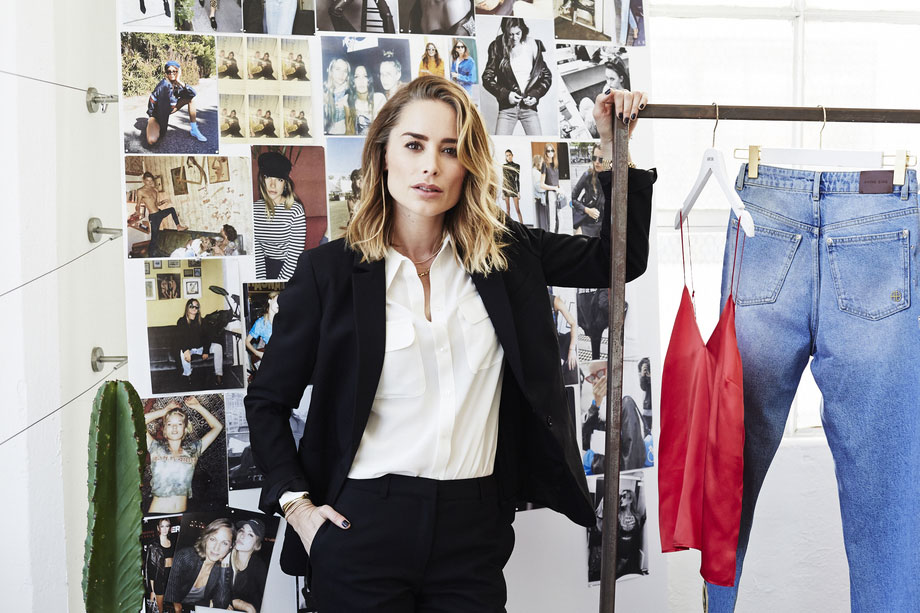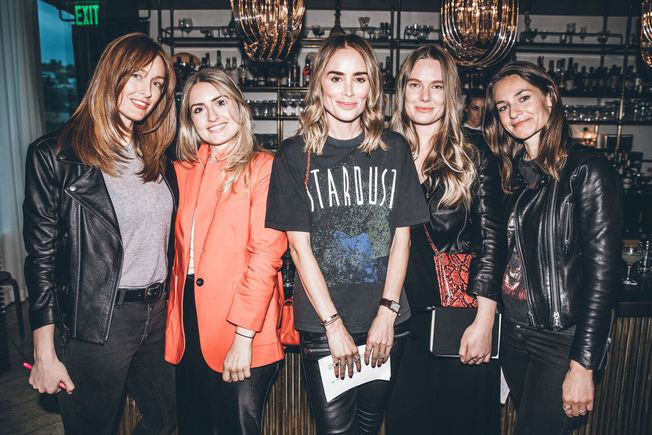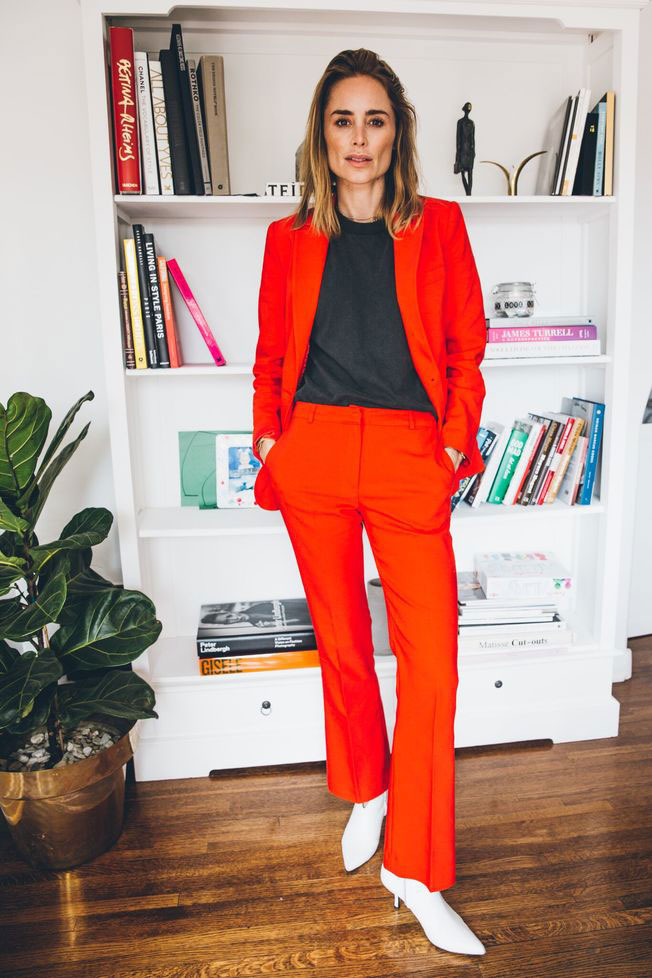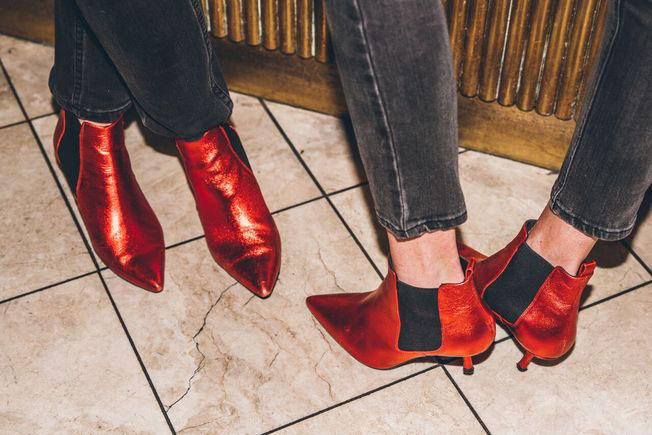“The antidote to burnout is to be consistently interested in your own life.”
– Eve Rodsky
Eve Rodsky discusses the importance of reclaiming and valuing our time. She highlights the gender division of labor and the crisis of women’s time being undervalued. Rodsky emphasizes the need to unlearn the habit of giving away our time for free and to treat our time as valuable. She introduces the concept of unicorn space, which refers to having time for activities and interests outside of our roles as parents, partners, and professionals.
Rodsky emphasizes the importance of consistently being interested in our own lives and prioritizing our mental health. She also addresses questions about navigating relationships where the other person may not fully understand or support the need for boundaries and ownership of time. Rodsky encourages women to recognize that they are not alone in their experiences and that collective efforts are needed to bring about change.
Tonje Kristiansen:
Author of New York Times bestselling book, Fair Play, and the national bestseller, Find Your Unicorn Space, activist on the Gender Division of Labor, attorney, and family mediator. It’s so impressive. I can’t take it. I’m so excited to sit here and just chat with you off the record and then just meet you finally. I’ve been immersed in everything that has to do with the amazing work that you’re doing, and now that I know in between you and me that you’re on the way to doing even greater work, the excitement is bubbling within me. But I had to get a little personal just as an introduction to our conversation, as I feel super emotional. I took everything in your books, in the documentary, all the podcast episodes I’ve heard, everything that I’ve been diving into lately, I felt very moved by it because you are… I see my own life, I see all the women I know around me, I see my family structure, I see my parents. I had to think through my whole learning curve as a single mother here in America and how I started out coming from Norway, not being prepared for anything like culturally, what awaited me here as a mom.
After divorce, after single parenting a hundred percent for my daughter, and then caring for my second child who was born only 25 weeks, and then all his special needs for years in the aftermath, which had enormous consequences for me, for my financial situation, and everything. And it shifted my life from where I started as a very kind of privileged person coming from Norway, moving to America and all that, and then everything changed. But my unicorn space has been creating this platform. It was about figuring out how I could continue my passion for storytelling and feel connected to people around me and how you say, so importantly, what you emphasize, how to be interested in my own life and interested enough in my own experience to share it with others and create the platform for other women.
So I guess, somehow, I’ve been doing a she-fault, because I found the time. I didn’t really have the time to do this, but it was some sort of like a step forward, and now I’m sitting here with you and that’s fantastic.
So I want to talk a lot about how to reclaim our time because I feel it’s a lot about time. Both your books is about finding and reclaiming our time and how we value it. Could we start talking about that, but then also go into a little bit of your background for the people that don’t know that?
Eve Rodsky:
Absolutely. Yeah.
Tonje Kristiansen:
And how this whole journey, Fair Play journey, started for you.
Eve Rodsky:
Well, first of all, thank you for being here during the Golden Globes. You can probably give us some updates about who’s winning upstairs, but I really appreciate this, Tonje. And these are my favorite types of gatherings where we can do sort of intimate book club or unpacking. As you were noticing last year, we did a lot of big things with the Fair Play intellectual property. We have a documentary on Hulu that we followed over a hundred couples actually for a year. It’s why my doctor said my body fat today is 50%. So I’ve sat in a dark room during COVID the whole time. But really, what I want to just start with is saying that this trajectory of studying women’s time and how we treat it like it’s infinite like sand, I like to say, and we guard men’s time as if it’s finite like diamonds.
The implication of what we do to women’s time is it’s a crisis. It was a crisis that I got to talk about in Davos actually before the pandemic, that we were one crisis away from losing 30 to 40 years of women’s labor force participation and even worse to lose us all to mental health and physical health symptoms from being the she-fault for our workplaces, whether it’s ordering boss’s birthday cakes to being the one to remind someone to pick up their child from daycare. But I just want to start, Tanya, by saying, and everybody here, thank you for coming, that I did not set out to be an expert on the gender division of labor. That was not what was on my third grade “What do you want to be when you grow up?” Board. It probably said veterinarian or astronaut. And it definitely wasn’t what I thought I was going to do.
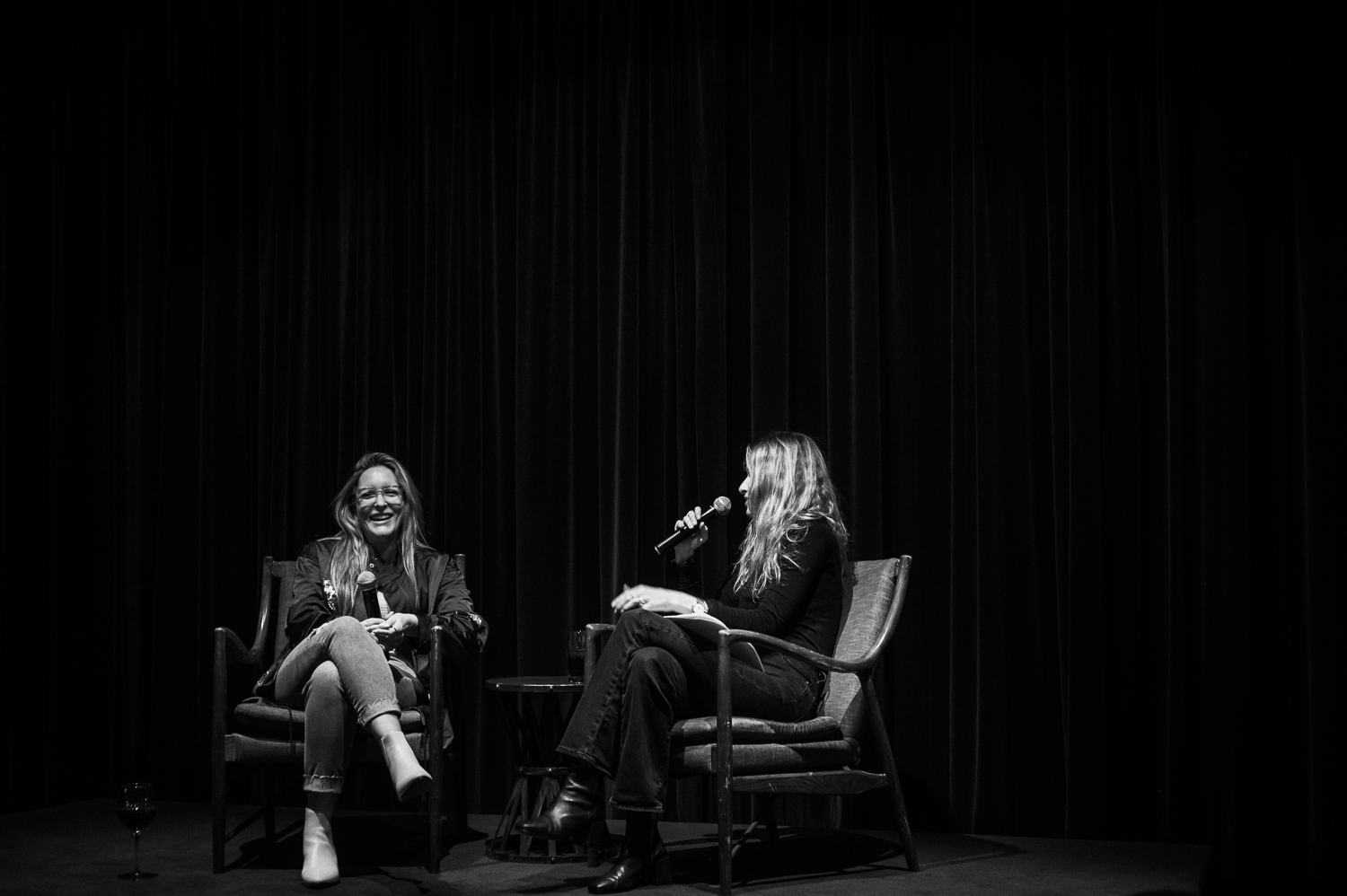
I graduated from Harvard Law School, and at the end of graduation, I remember Elizabeth Warren asked us what we’re going to do with our law degree. And I genuinely said to her I was going to be the president of the United States while being a senator because I still wanted to legislate and I was going to be a Nick City dancer as well, because you could fly Air Force One into the iconic Madison Square Garden and you could dance the Saturday game and then you could change for state dinners on the way back on Air Force One, and then you could legislate during the day and it’s just… I’d be smashing glass ceilings one after the other. Those were the big dreams that Gen X was told that we could do anything. And then if you really look at my life, I’d say cut to 10 years later or 12 years later, the only thing I could tell you I was smashing, Tanya, which sounds like sort of what happened to you with the cruel realities of motherhood here, was peas. I was smashing peas for my toddler, Zach, while breastfeeding a baby, Ben, while learning that I was going to have to go back to work with no direct reports because they wanted to make it easier for me.
Just spoiler alert, I wasn’t president and senator or a Nick City dancer, but I liked my job. I was working at a big corporation doing philanthropic advising. I worked for families that look like the HBO show Succession and you should all feel bad for me. But what I did for those families was I created organizational systems for their lives through governance and legal rules that made them have very complex decisions, simplifying them so that they could make those complex decisions. But that’s what I was hearing. I was hearing from my manager that I couldn’t work from home on Fridays, because that was her arrangement. And if she told everybody that was what she wanted to ask for me, then she’d have to out herself that she was working from home on Fridays.
They’d given me a great place to pump, which was the dark stairwell behind the building. And so there was a lot of emotional abandonment 12 years ago, which put me into the place of Fair Play, which my workplace was taking away my integrity at the same place that my partner was abandoning me by assuming that I was going to handle every single household and domestic tasks for my family, because even though I worked full-time, I made less money than he did, on top of the fact that in America, we have no paid leave, we have no universal childcare, we have no doulas, we have no social supports, we are kicked out of the hospital after a day and a half.
The number one word associated with OB-GYNs when women are asked is abandonment. So we have no state to come in even the way Norway did. And so everybody tells you that the best thing to do is to wait till your kids are in school and then women can resume their amazing lives. Well, that’s what happened to me when all of this started. What happened to me after being abandoned by my partner and abandoned by my workplace was I finally got my son into a toddler transition program. And I was so excited these were going to be, and Georgia has been, and if you remember, teacher Pat, she sat us around and it was all women and a couple of gay fathers and we were bouncing our kids on our lap, and I had that baby at home and I was carrying my breast pump and I had the toddler on my lap, and she said to us, “Look around. These are the people that are going to support you. They’ll pick up your kids from daycare. They will be there for you at your wedding, at your kids’ bar mitzvahs.”
And then I looked down at the name tag that day that I was wearing in this library of the school, and my name tag said, “Zach’s mom.” And I remember thinking, these are the people that are going to know me better than anyone has ever known me. They don’t even know my fucking name. And that’s when I realized that what was closing in on me around that time, which was again 12 years ago, was this very weird juxtaposition, Tanya, of overwhelm and erasure. And that’s when I realized that I was going to completely lose my mental health if I didn’t do something about it.
And then that’s how Fair Play started. It started with asking women, what do you do that takes more than two minutes of your time for your workplace or your family that gets unnoticed? Nine months later, I had a 98-tab spreadsheet called The Shit I Do spreadsheet that had 2000 items of invisible work on it. And that’s really the way this, and Rebecca and my friend, another friend here knows, she was a contributor to that spreadsheet. But that curiosity about what was happening to me in my own life and the people around me was how this movement started.
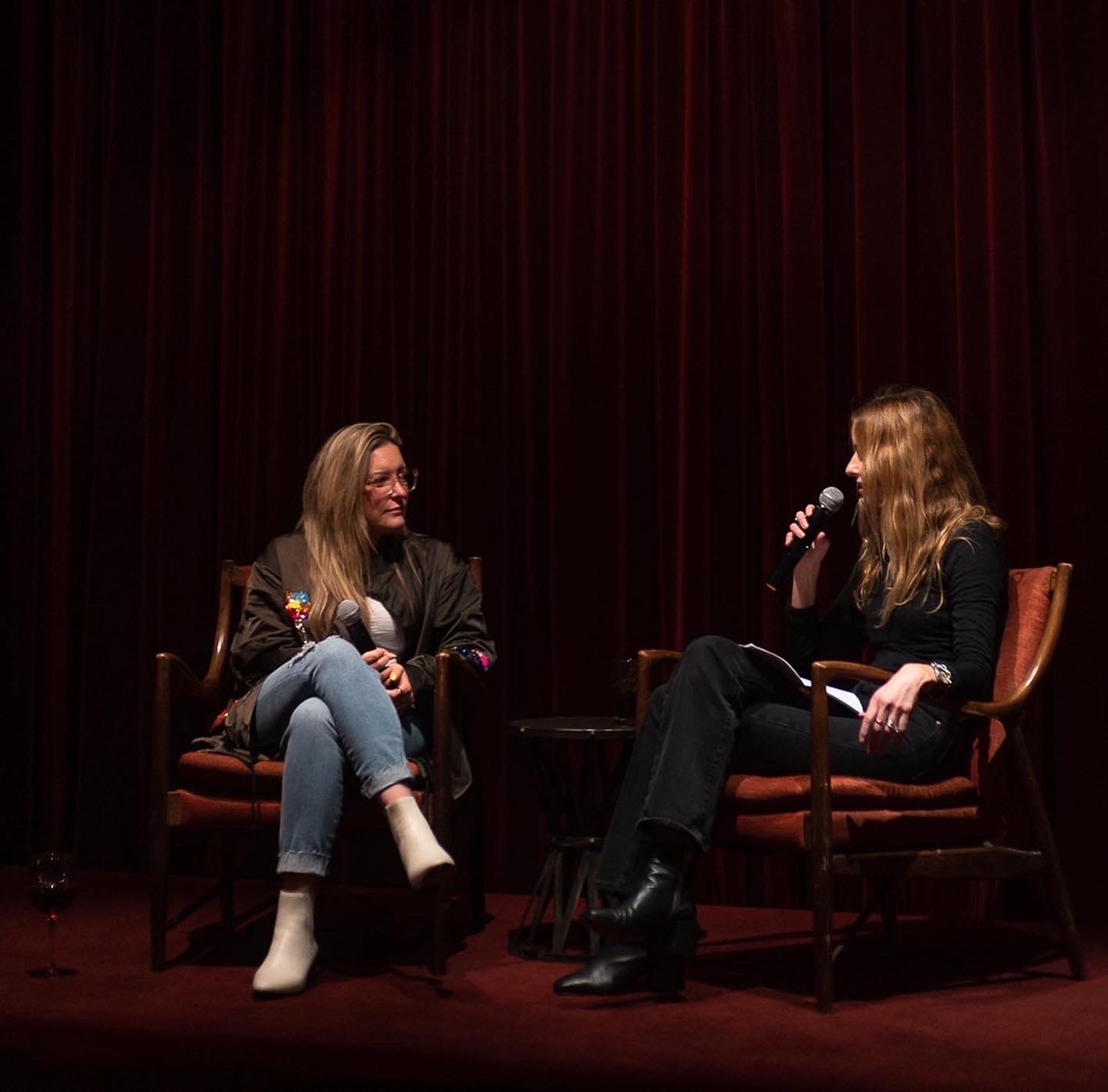
Tonje Kristiansen:
Just to get back quickly to… I think it’s interesting, why are we told or why do we believe we can have it all? Because I feel I spent from my 20s up until now, almost, and now I feel like I’m liberated from it, but it’s like you have to reconstruct whatever you were taught, whatever you believed when you were in your 20s or how old my daughter is now. It’s like starting over again when adult life hits you. It’s like, “Okay, so everything I believed, it’s not true. Everything that I thought I was going to have, I’m not going to have. Now I have to reinvent myself, figure out who I am again, throw my old self in the bin.” Why is it like this? Because that takes a half a lifetime. How can we prepare? I’m thinking now with my daughter who’s 16, how can I prepare her? I think she’s seen me, so she’s probably prepared better than I was.
Eve Rodsky:
Don’t partner with a man. That’s what you tell her.
Tonje Kristiansen:
It’s interesting. Why are we told we can have it all, and then we feel like failures, kind of, along the way.
Eve Rodsky:
It’s such a great question. I think this is the key question. This is the key question. And again, we will sit here and be the ghost of your Christmas future, or at least empathetic if you went through some types of traumas like this, when you realize the world, how everything you’ve been told is a lie. It’s positive. This is optimistic. There is a way forward, I promise you. But I think to get to that way forward, and remember, I started this journey in 2011, so I want to just say this is a 101 primer. It’s taken me 12 years to unlearn these habits. And regardless of whether your family structure is what you saw growing up. My mother’s here, I’m a product of a single mother. I saw a woman do it all with no blaming herself for my brother’s special needs, and where my father just would swoop in to take us to Kentucky Fried Chicken once every six months, and I thought he was the best father ever.
But regardless of our family structure, I think the core crux of the work, which Fair Play and Find Your Unicorn Space is based in it’s rooted in this idea of what we do to how do we condition women to give away their most valuable asset for free, which is their time. And we have built an entire society on the notion that women will give away that time for free, because unpaid labor of women, and especially women of color, because there was a boss bitch feminism that we came out of, which was really toxic because it wasn’t like, well, you shouldn’t give away your time for free. It was that, oh, you can rise in the ranks as long as you outsource to other people who will give away their time undervalued, and that will be black and brown women who will be the nannies for you and the housekeepers for you so that you as a white woman could rise.
So that was really toxic, and the whole outsourcing was a very toxic time in this movement. But now that we’re moving into care feminism, what I think the Fair Play movement and Unicorn Space is really about, regardless of where you are in your age or your journey, is the idea that you deserve to treat your time as if it’s diamonds. And so what do I mean by that? Well, since birth, we’ve been conditioned to believe our time is worthless or worth less than men’s time. And the way it manifests itself is we have something called occupational segregation. If women enter a male profession, salaries automatically come down by 50%. If women of color enter that profession, it’s even more. So we’re told that our time is worth less. They pay us less for what we do.
There’s also, you may have heard things like breastfeeding is free, and actually, not you may not have heard it. That was actually in the home ec curriculum up until about five years ago, that breastfeeding is free, and I have it on my Instagram to prove it. But it’s 1800 hours a year on average, if you want to breastfeed one baby. So that’s a full-time job. And then we also shame women if they don’t do, which I think is crazy. That’s another tip, just don’t ever breastfeed.
But what was so interesting from when I started the Shit I Do spreadsheet, and subsequently interviewing women now in 17 countries, Fair Play has been translated into 17 countries… It’s actually in 52 territories in 17 languages. But the crux was how women became what I called in sociology, you can have these codes for how you pattern what your interviewees are saying. And one of my favorite and most interesting code kept being CIYOO. It kept coming up over and over. And then my data scientist in turn would say, what does that mean? And I would say, well, that means complicit in your own oppression. Because what women were doing were saying to me things like… I’d say, “Why are you the ones? Why are you the one picking up your kid… the phone when your kid is sick from school? Why are you the one ordering the boss’s birthday cake? Why are you the one sitting in document review in the basement when Martin O’Sullivan is the one flying around with a partner because you agreed to do the shit work?”
And so what women would say to me were things like, especially about the home life was, “Well, my job is more flexible than my partners’. My partner makes more money than me, so of course I should be the one taking on all this domestic labor, this unpaid labor.” Or they would say to me, “Well, in the time it would take me to tell him her they what to do, I should just do it myself.” Or they would say, “Well, I’m just a better multitasker. I’m wired differently to see that the garbage is overflowing.” Or the saddest one was, “Yeah, we’re both colorectal surgeons,” this is a true story, “but I can find the time and my partner’s better at focusing on one task at a time.”
So I think I’m just here to say, this movement is about you opting into the worldview that you can’t fucking find time. You’re not Albert Einstein. You can’t fuck with the space-time continuum. I wish you could, but you can’t. And so what I realized is that the core crux of what Fair Play has become is this idea that you deserve choice over how you use your time. And when society, especially after you have a role like a mother, if you add mother to that role, that’s what happens. You are told you could have it all until the roles of either parent, partner, or professional get in the way. And then God forbid you do anything else for yourself, or you waste your time on anything that’s not in a role to someone else to serve that other person, and then you get batted down. And that’s why we’ve been sold a lie.
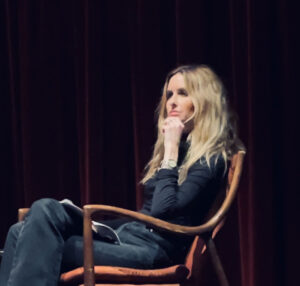
Tonje Kristiansen:
That’s very interesting because why are we supposed to feel guilt when we do something that is completely natural for a man to do at any time? I remember when I had my first child, that’s when I realized we could never be together because I think the values were so different. We didn’t even have a chance on the Fair Play. We could play those cards and we’d still not work. I was breastfeeding a little baby. Everything that he needed to do could be like go to the bathroom, go out for a run, eat his whatever breakfast he ate. All this had to be done before he could accommodate anything that had to do with the child. And for me, who grew up differently, who had a dad who were more hands-on, I was in shock. I could not believe I was in this situation. But then, eventually, I started to accommodate this, and I accommodated both him and the child until I figured, “No, fuck this. I’m not going to be married to this guy,” because it’s useless. This was a minor example on a bunch of problems, but I just think it’s interesting and it’s what you’re talking about.
Eve Rodsky:
Well, the good news is, like I said, this is sort of the… One man said, you really like to go dark to go light. So we’ll go into the lighter part of the program, but I think the part of the unlearning is understanding that that’s what we’re up against, that it’s not you. And so one more piece of unlearning I think that’s really important to really understand is that another thing that society has conditioned us to do besides give away our time for free is it has conditioned us to… And we know if you monetize even unpaid labor, one year of unpaid labor across the world at minimum wage, not even the opportunity cost of someone who’s a lawyer, giving it away at 7.50 an hour or whatever, it’s 1.9 trillion a year. It’s actually a UN sustainability goal, 5.4. One of the sustainability goals to understanding how to have a sustainable society is that we have to change how we value unpaid labor in the society, and we have to stop making women do it for free.
So I think that’s a good sign. But the other piece of unlearning, I think, that’s really powerful, and people talk about these tools of the patriarchy, but I’ll talk about sort of how it manifests itself. So if you’ve ever said to yourself in the time it takes me to tell him, her, or they what to do, I should do it myself, that’s just a present-value issue. That means you’re devaluing all your future time. If you’ve ever said you’re a better multitasker. My favorite way to unpack that one was going to a neuroscientist who said to me, “Wait, what is your question?” I said, “Well, my question is, are women better multitaskers? Are we wired differently to see what was happening while someone else can eat their breakfast?” And this neuroscientist said something that made me cry in his office, which was, “Oh, no, there’s no gender difference in the way the brain task switches.”
It’s not even called multitasking. It’s called task switching, because the brain doesn’t do two things at once. It task switches. He said, “But if you’re asking me whether women are better conditioned to wipe asses and do dishes, sure. Of course it benefits me for you to think you’re better at wiping asses and doing dishes, because I’ll have time for tenure and for my golf game and to eat my breakfast in peace. It
benefits me for you to think you’re better at this stuff. Of course.” And so that was a really interesting myth to have to dispel. The final myth that I think is really important is this idea that availability has to be part of our identity. And I think it’s very triggering, because especially if you’re a mother or you want to be a caregiver at some point, a lot of people, and we call it martyrs, and we shame women for doing this, but it’s really because we’ve been conditioned since birth to be available to everybody else.
And that idea is that we are allowed to be in service, as we said, of being a parent. We’re allowed to be in service of our partner, and we’re allowed to make money because we have to. This income inequality means women have to be in the workplace. But we’re really not allowed to be unavailable to do anything else. And even if you believe that you deserve to be unavailable from your roles, then what happens is guilt and shame will come in to ruin all that time that you’re unavailable. And that’s what was really hard. What was interesting about interviewing women over a decade was that we have a lot of emotions. And I used, actually, my son’s back to the toddler transition program. I used the emotions chart, and I would ask women, “How are you feeling today? What are your emotions?”
Rage is a new one that we’re allowed to express. But back 10 years ago, women were still not even identifying that they felt rage. But what was interesting was there was only two emotions that actually led women to change their behavior in the moment. So I’ll give you an example. This one woman said to me that she’s really coming to her own to understand this concept of unicorn space, which is the antidote to what we’re talking about. The fact that you’re allowed to take up space. It’s like a fucking unicorn, doesn’t exist. It’s mythical, it’s magical. You’re allowed to have time for things that make you come alive that are not your roles. But what this woman said, her thing was, she’s a single mother like you, and she had a rent-stabilized apartment in a building that the Julliard students were in, and she wanted to start practicing piano again.
So she got sheet music, she printed some online. She said it was like show tunes and Hamilton, all this stuff. She was really excited to play piano again, and she sat on the piano. She tells me that she’s watching the sun go down and sort of like the west side of New York, city of Manhattan. And her heart starts pounding because she knows her child doesn’t like being in daycare when the sun goes down, when it’s dark out. And so she said she just left her sheet music there and gave up her weekly time that she had so eagerly built in to fight the Julliard students for to get her Tuesday afternoon piano time. So why do I bring that up? Because she had the thought in her mind that she felt guilty that her child was at daycare while she was practicing piano, and instead of just having that thought or allowing that thought to process, she acted on that thought immediately. She-
Eve Rodsky:
… allowing that thought to process. She acted on that thought immediately. She left the music, she went to go pick up her child and then canceled the slots for practicing piano. And so, that’s the problem with guilt and shame, especially I think for women is that it’s an emotion that if you don’t check it with this unlearning in the context will make you make different decisions than you would if you were doing it when your emotions were low and your cognition was high.
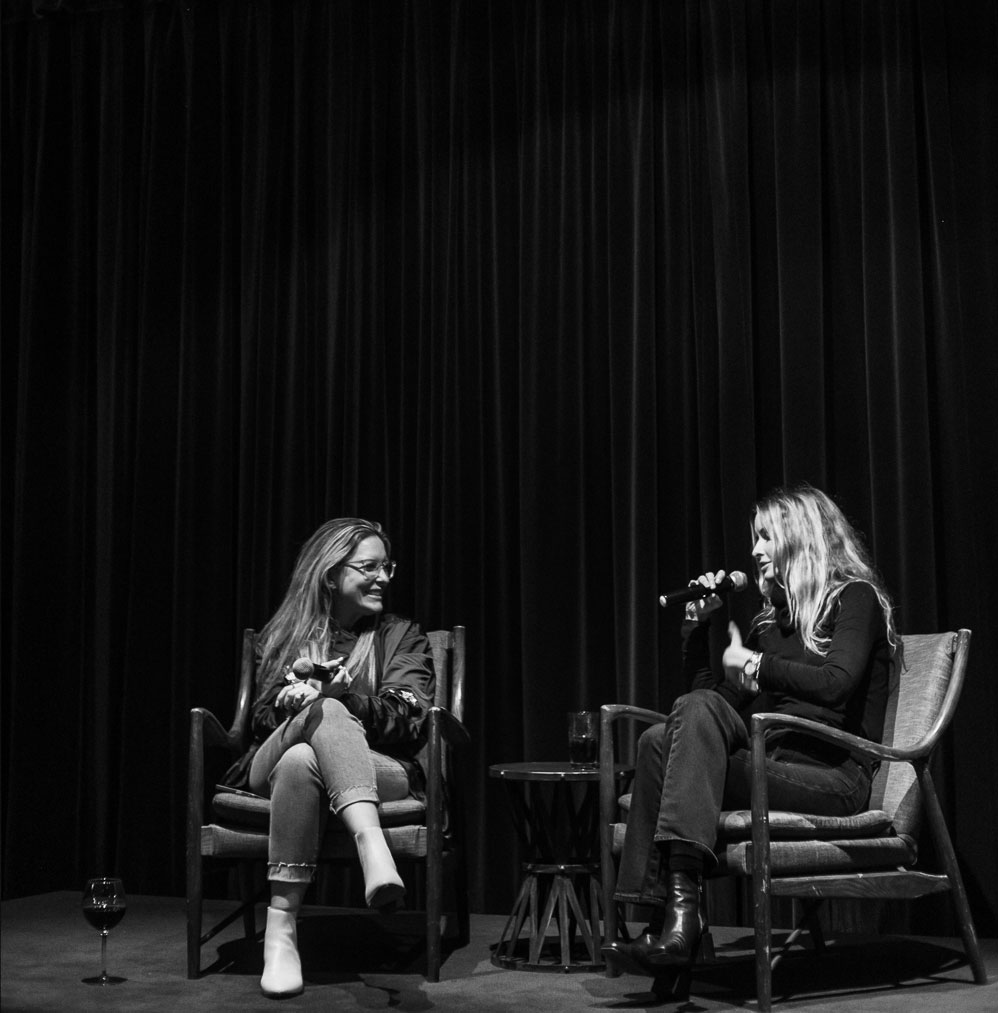
Tonje Kristiansen:
It’s interesting, I see with myself that I need other people involved to take myself seriously and drop all the guilt and shame sometimes if it’s only me. My head is spinning about all the things that I should or maybe I should check in if she got home from school, or maybe I need to call this person or maybe I need to, whatever. So, that’s an interesting thing that it’s still kind of being there for others. If I know that some other people are relying on me, I’m making sure I’ll do it.
Eve Rodsky:
But that’s a good thing because the science now shows, and this is where we get into some of this creativity research, which I think people always ask me, how did a book about creativity become a sequel to a book about men get doing childcare and housework? But the reason why was because the secret, the alarming part for me wasn’t that men don’t do childcare and housework because that was easy to understand. We’ve been conditioned again, to view men’s time as if it’s finite. It’s a diamond, we protect it. And again, if you don’t believe me, you just have to call 50 schools like I did during the pandemic asking why they called women first.
And it’s because they, spoil alert, they don’t want to bother men. Men don’t pick up. There’s a lot of interesting answers. But I think really the crux to what we’re talking about here and as we move into creativity is understanding that that became a sequel because so many women said to me, especially after kids, “Wait, Eve, so why would I do Fair Play? Getting time back for what?” And I said, “What do you mean? What are you interested in? What do you do for fun? What task that says makes you say, I can’t believe I just did that?” And there were too many women that said to me, “I don’t know. I have no idea what that is anymore.”
Tonje Kristiansen:
Fair Play is leading to the unicorn space. That’s how I see it.
Eve Rodsky:
Yes. Well, the point is, if you tell me that you are in a place and you’re whispering to me that, so what ended up happening was that so many of us, because we were numbing ourselves through parenthood, what happened was we started to adopt hedonic wellbeing as if it was the answer to how hard it is to raise children and to be caregivers and to be women in workplaces in America. So, what do I mean by that? We started to have this whole culture of mommy juice, normalizing drinking and numbing yourself, right? Through parenthood. There’s a whole edible culture now of a lot of women who just take edibles starting in the morning every weekend to numb themselves through caregiving. I feel that way too. We binge watch Netflix. So, what happened was we sort of moved to this way of saying, “Well, we can’t do this. Society’s not going to help us. We’re going to drown. So, to stop myself from burning out, I’ll just go down this path of doom scrolling and binge-watching and mommy juice and edibles.” Whereas really, we now know that the key to our mental and physical health, I wish I could tell you it was that edible or even a drink with a friend, which is important, or a SoulCycle class or whatever. I wish I could tell you those baselines will prevent your life from burnout. But really there’s only one thing in the whole world that will prevent you from burning out across your lifetime and different from men, for men is the quality of their relationships.
So, that’s why Fair Play is important. But for women, the answer is the antidote to burnout is being consistently interested in your own life. That’s the only antidote. And that’s why I had to write a whole book about it because it’s not easy to say to you, “Here, take this glass of wine.” I’m here to tell you you need to be consistently interested in your own life, and that’s a much harder sell. And that’s why it took
a whole book to write about because how do you maintain not just of girls weekend once a year, but that consistent practice of being interested in your own life. And once you get that formula down and you believe that your time is diamonds, you deserve to be unavailable to in pursuit of that unicorn space, then you have a lifeline for mental health the rest of your life.
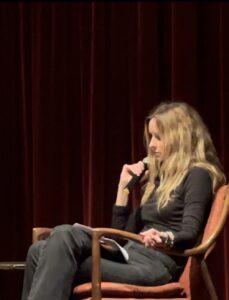 Tonje Kristiansen:
Tonje Kristiansen:
So, when you talk about consistency, I want to get into that flow state that is scientifically proven that it’s beneficial for our health. Can you-
Eve Rodsky:
I’m just laughing because I was on a panel with this productivity expert and he said to me, he said to the group, he said, “Well, what’s your hack?” And he said, “It’s really easy, you just need two uninterrupted days a week.” Well, women during the pandemic were being interrupted on average every three minutes and 42 seconds. So, I love the privilege of the two uninterrupted days a week. It just made me laugh. But I want to just say that back to this idea of what does it look like to be consistent and what is a flow state? It all comes down to actually understanding, especially for women, that the past 10 years of literature and self-help I think has been a highly toxic because it’s been a self-help about happiness. If you’ve seen anything around you, there’s how to be happy podcasts, there’s hacking your way to happiness.
Every book is about happiness, happiness, happiness. And now we’re finally seeing the research on happiness pursuits. And what we’re seeing is that people who pursue happiness are more sad. So, don’t do that. And in fact, if you have a loved one, I don’t even want you to say to them, “I just want you to be happy” because that’s a sociopath. A sociopath is happy right now what you want. And the true definition of mental health, which is really what I would want you all to hold onto and for the next generation, for you to tell anybody instead of substituting, “I wish you happiness,” or “I just want you to be happy.” And my son laughs because he’s like, “I’m so sick of hearing this.” He’s like, “I know, mom, you don’t want me to be happy. You want me to have the appropriate emotion at the appropriate time and the ability and strength to weather it.”
That’s the true definition of mental health. And by the way, when I learned that it was so freeing because after Trump was elected, today when I’m walking through mud, I am not happy. Or when I’m with my kids and I want that root canal, I’m not happy. And that’s okay because it’s an appropriate emotion at appropriate time. But the unicorn space idea, this idea of this creative flow state, this idea of having this consistent interest in your own life, it’s the third thing that matters. The appropriate emotion at the appropriate time, and the ability and strength to weather it. So, this creative pursuits become your umbrella. That’s why they’re not optional. That’s why it’s not a hobby. Hobbies were connoting in frequency in my interviews. This is the consistency of saying, “This is the most important thing you will do for yourself. It does not have to be a side hustle.
It does not have to be paid. And it absolutely does not have to be a passion” because I don’t even know what that means. And it’s not something you did as a child. Because as a child, I was helping my mother with her bills. I was not doing whatever. This idea of having to go back to what you once loved as a child. No, instead, what you want to start thinking about, and this is the fun part of the program of when you do these things, you’re actually helping me with the movement. Because if you’re saying to yourself that you’re creating a boundary around your life, that you’re implementing systems to keep that boundary in place, and you communicate what you need, then you’re doing Fair Play. You’re part of this movement. And that’s all I ask is that the secret formula to do what we’re saying today is not that hard.
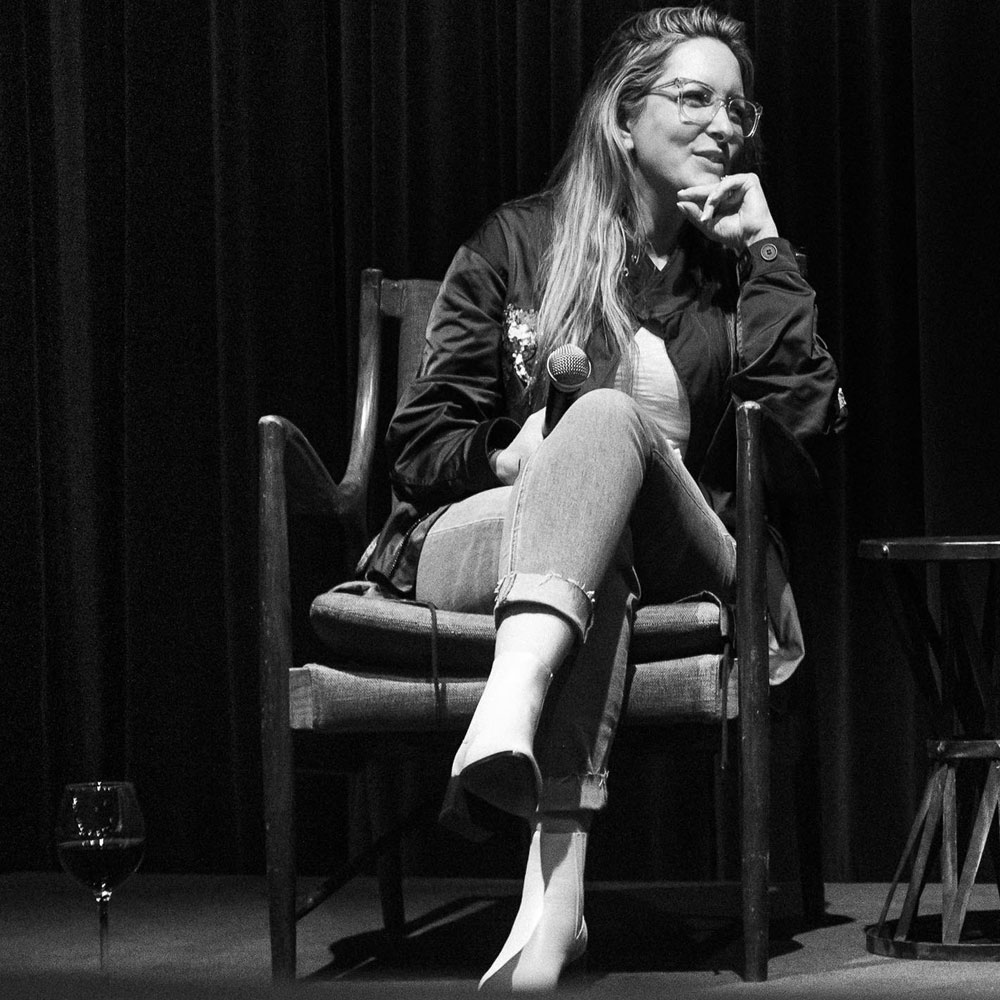
It requires just three things. I mean, the boundaries is what we just did for a long time. We’ve been unpacking boundaries since we got here. That’s this idea that your time is diamonds. That’s the hardest thing, right? That you deserve, a permission to be unavailable from your roles without guilt and shame. That’s the hardest part. But the systems of understanding that you don’t have to do all the unpaid labor in your workplace and at home, that’s what Fair Play’s about. And the communication is the idea that you can start asking for what you need. But when you have a good mix of boundary systems and communication, that becomes a secret formula for all of us to start protecting our own time and to be in a new culture that prioritizes this type of mental health, not the hedonic mental health that we’re talking about that leads to more sadness and depression.
Tonje Kristiansen:
It’s interesting because when I was reading and thinking about the flow state and listened to what you said about it and was reading the Find Your Unicorn Space, I was thinking about my own parents and the generation of the seventies, and my mom had a big career. She was a movie director. My dad was producing her movies, but he was the most hands-on at home. And he died a year ago and I was very close to him, and I started going through his whole archive of things from his work to his personal notes, everything. And I was home recently, and I found letters and emails in between from back in the days up until a couple of years ago where he and my mother is kind of arguing or having a thing going back and forth in writing where I don’t know when this was, but that was when we were growing up I think
He, my dad had a long list where he was saying to her, this is all I’ve done today since I woke up at seven. And that looked like my list. And I was like, oh, it’s me here in the drawer and it’s you. I see where I got it from. And he had a long list starting at eight o’clock in the morning or something like that, ending like eight 30 in the evening. And it was all trivial stuff, all grind stuff. And then she wrote back and she just said, “I get it, but I didn’t reach my flow state today.” And I was like, but so I didn’t grow up with a role model who I could mirror when I started my life and got into all my issues and had my issues with my kids and my marriage and whatever. Because she never asked for permission. She was the opposite while, he was doing that. So, I kind of probably thought that all men were like him-
Eve Rodsky:
I think you probably thought that was going to be your life-
Tonje Kristiansen:
So, I went head on and straight into disaster kind of. So it’s quite interesting to see. But she mentioned, she was like, “I couldn’t get into my full state.”
Eve Rodsky:
I love her because that’s where you want to be, right?
Tonje Kristiansen:
Exactly. So, I just thought this was given. Oh, she just got it all the time. She got space and she just took it.
Eve Rodsky:
Well, that’s it. I mean, I’ll ask you, you can raise your hand outside of your roles if you can raise your hand. When was the last time you can tell me, or in the last week, did you have a time where one day of this week, the most important thing you did that day was outside of your roles as a parent, partner and professional? Okay, so yes. Okay. So, what was yours? Yoga. Okay. What was yours?
Eve Rodsky:
Oh, I love it. So, good. Yes. Amazing. Another one. So, I think that that practice, right? I mean, we will learn from our minority here, but if we can say and prioritize that we deserve at least one day a week where the most important thing we did that day is outside of those roles, then we’re going to be more like your mother or we’re going to be more in a place where we have parity. And then another really interesting thing that I found in the research, which I think is important too to highlight was, and this was a gendered issue. So, I love your dynamic there, and thank you for cooking dinner. As long as you’re also choosing the menu and making sure the groceries are there, then that’s ownership as opposed to asking, “What should I cook for dinner?” And then though that’s not Fair Play.
Tonje Kristiansen:
Oh, could you just explain ownership?
Eve Rodsky:
Yes.
Tonje Kristiansen:
Because that’s very interesting and very important.
Eve Rodsky:
Well, I think I’ll just give you the gist of, so we did a lot of boundaries. I think we can end on communication, but the systems, what Fair Play is predicated on is what I call the life-changing magic of mustard. And it was such an interesting realization for me in the past decade because I started with this shit, I do spreadsheet. And so, I started to ask couples of all family structures, all different races, 17 countries, different economic spectrums, “How do you split your domestic chores?” And most people who were married to men, women married to men, were saying things. They were telling me they were miserable and their marriage isn’t fed up, but that they split things like they both did everything. They split things evenly. So, that didn’t make sense. And so, I had to find a way to quantify what was actually happening.
So, instead of asking “Who does what?” Which was an unhelpful question, what I started to ask was, “How does mustard get in your refrigerator?” And what was so great about using condiments was that, again, I could ask it in 17 countries, every country has a condiment that I could use to substitute in for mustard. And even in Norway, this place that we keep, there’s this sort of vague racist thing that we always point to. The Nordic countries is like the pinnacle of where we should all be and live. But even in Norway where I interviewed a lot of people, it was the same. Women partnered with men told me that they were the one noticing that their second son, Johnny likes yellow mustard, not spicy Dijon jean, not anything else yellow, French is yellow mustard because if he doesn’t have a yellow mustard, he’ll choke on his protein, he won’t eat it.
Okay. So, in the business world, that’s actually, we get paid big bucks for that. That’s in project management, organizational management, something we call conception. We’re coming up with new ideas where you’re noticing and making changes in your organization. So, I wrote down, “Oh, okay, conception.: And then the women were saying to me, “Oh yeah, and of course I’m the one who monitors the mustard from when it runs low and add, I get stakeholder buy-in from my family about what they need from the grocery list.” They didn’t actually say stakeholder buy-in, but that’s what I was listening for because organizational management is my lens. And so, I would say, “Okay, stakeholder buy-in and monitoring, that’s planning.” We also get paid big bucks for that. So, conception and planning was staying with women. And then I would hear, oh yeah, I said, “We both do it because then I send my partner to the store for the yellow mustard and he brings some spicy Dijon every fucking time.
And Eve, you want me to trust my partner with my living will? This dude can’t even bring home the right type of mustard. So, what are you talking about? There’s no Fair Play here.” And so, the beauty of that was realizing that when you break up the conception, planning, and execution, you don’t do that in the workplace either because that leads to lack of psychological safety and a lack of ownership mindset. When you can bring the ownership mindset to the home, what we were really unpacking wasn’t that the spicy Dijon was the problem. What I was able to hone in on was that most people in their relationships were struggling with accountability and or trust. So, women were saying to me, “I don’t trust him to go to get the right type of mustard, so I’m not giving him anything else.” And then there became a lack of accountability.
And then it became even worse for men because then men said to me, “Well, there’s no psychological safety in this organization, this home organization, because I can’t get anything right. Every time I do something, it’s wrong. And so, why would I ever volunteer to do anything in an organization where I’m being criticized for doing everything wrong?” And that was the crux of what the system of Fair Play became. It’s not rocket science. When you keep the conception, planning, and execution together, it is one of the most life-changing things you can do in your partnership because it empowers somebody else to take a full ownership mindset. And in my home, I’ll just give you a quick story of how this all plays out. This couple, Amy and Richard, they decided to play Fair Play during the pandemic. And one of the cards in the deck, it’s a metaphorical card game and there’s a hundred cards.
One of the cards in the deck is called Magical Beings. It comes up a lot. Tooth Fairy comes up a lot for some reason. And so, Richard says he wants to take that card. He wants to be the tooth fairy for his daughter. So, he owns that card, so that means he’s going to be responsible for the full card in the deck. And so, you can guess what happens, the first time his daughter loses her tooth under his regime, which was her second tooth, the tooth fairy doesn’t come. So, they’re reporting back to me, right? For data. I have now thousands and thousands of beta testers, and you can see a lot of them in the documentary, it’s on Hulu, it’s called Fair Play. But what was so interesting about their story, this is such a small story, but it shows you sort of how this movement when you start to believe your time is diamonds, and you allow someone to have the space to be the tooth fairy.
What Amy said to me was in the past, she would’ve said to Richard, “You’ve ruined our child’s magic. You’ll never do anything for our family ever again. You’re the worst father that’s ever existed.” She would’ve been a verbal assassin, that’s her communication style. And what Richard said was even more funny, he said to me, he “Would’ve 100% blamed Amy for not reminding him to put the dollar under the pillow.” That was their pre Fair Play dynamic. So, what they tell me happened after Fair Play was back to the accountability and trust was the first thing Richard did was he disarmed Amy because he said, “I fucked up. I own this card.” He didn’t blame her for not reminding him. He said, “I was supposed to be the tooth fairy and I didn’t do it.” And their daughter’s waking up and she’s super distressed. And so then she said, “Okay, well I’m going to hold my tongue.” She didn’t verbal assassin him, and she knows part of Fair Plays ownership and part of ownership is carrying through your mistakes.
So she said, “I’m really mad right now, but I’m going to hold my tongue for when emotion is low, cognition is high, and I’ll let you carry through the mistake. I assume you care enough because our daughter’s in distress to carry through the mistake. So, what he tells me is he emails Toothfairy@gmail.com. Of course, a woman responds because she’s doing the emotional labor for us. Somebody creepily responds to him during his workday because he wrote the email in the morning with the daughter before school that said, “Dear Tooth Fairy, where the fuck are you? You didn’t bring the tooth” or whatever. And so, the daughter’s watching him write this email and to an actual email address. So, during his workday, he gets an email back from toothfairy.com saying, “Dear Ashley, I’m so sorry your tooth didn’t come. There’s been supply chain issues. If you don’t know what that means, ask your parents. It’s in the newspaper.” And he prints out this email from toothfairy@gmail.com. He shows his daughter, he tries to explain to a 6-year-old what a supply chain issue is.
But all she cared about was that the Tooth fairy said that if she’s late, she brings double the money. And so, that night, the Tooth Fairy came with double the money. And that’s the end of the story. They’re still together. He’s still the tooth fairy. That’s what Fair Play is. It’s the fact that you recognize the humanity in these small moments. That being the tooth fairy is very important. It’s the stories of our lifetime, who you went to the grocery store with, my mother and I shopping at Pathmark, her showing me the unit prices, telling me why we couldn’t afford Tide. These are the stories of our lives. These are not just chores in housework, they’re our humanity. And so, once we start realizing that we don’t need to discount them or just only talking about outsourcing them to Black and brown women, that’s not the solution. The solution is to understand that care is who we are foundationally. And probably the one of the most proud moments for Richard, at least what he’s saying to me was how he handled the tooth fairy situation. And I think his child will always remember that.
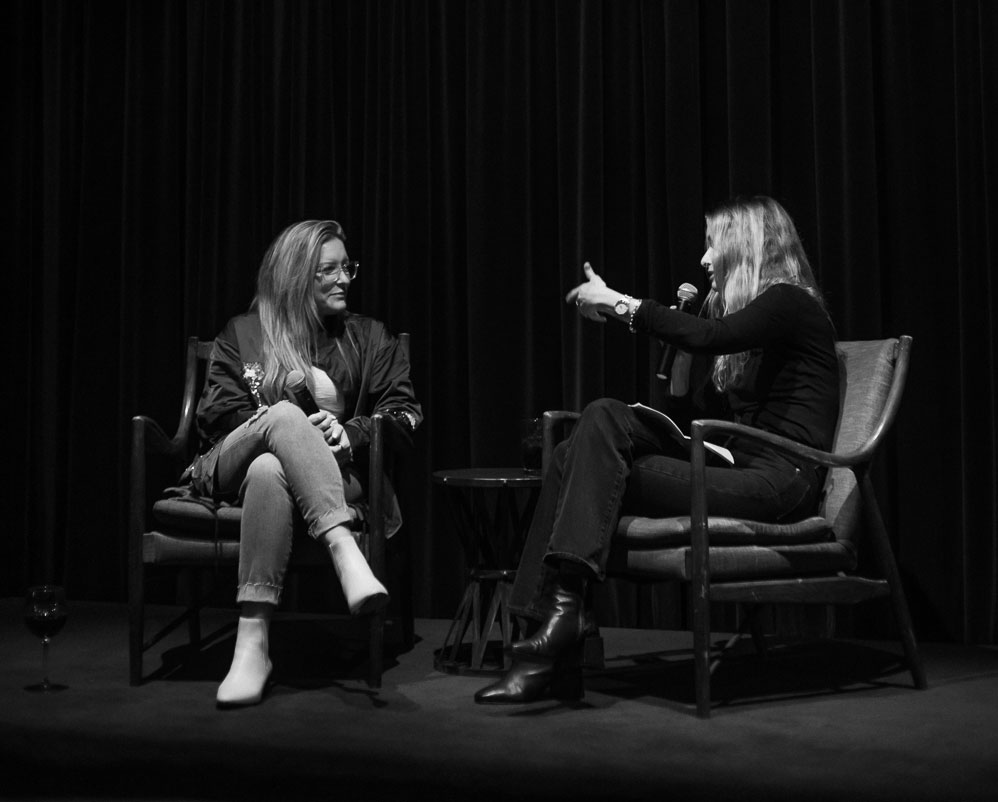
Tonje Kristiansen:
I’m curious on if someone takes ownership, will that rid me of… What my problem is that I always feel I accommodate.
Eve Rodsky:
I think my mother was like that a lot. All right, I know you have to go. Okay, I love you and I know we’re wrapping soon, but I want to just talk a little bit about that because I think we all have certain personality styles, but I think the best thing about being a part of a community is to realize that it’s not your fault. It’s not your fault if you were taught to accommodate. It’s not your fault,, if you’ve said to yourself “In the time it takes me to tell him or they what to do, I should do it myself.” It’s not your fault if you’ve been told or you think that you’re a better multitasker. It’s not your fault if you say you’re the one who can find the time. It’s not your fault if you’re saying “I’m the one who cares more.” Because the
truth is that none of us deserve to live in a world where people don’t care about our emotional feelings, about our time, how we choose to use our time.
That’s the world we should be living in. So, it’s not your fault that any of these things happen to you. One of my friends who is giving me data for Fair Play showed me a picture of a pairing knife in a car seat because her husband’s a chef. And she said, “So, do I just pick the knife out of the car seat?” And I said, “No, you don’t deserve to have a knife in your car seat.” This idea that we have to lower our standards or shut our mouths or use I statements, I always hated that in therapy because I would just say to Seth, “Well, yeah, I’ll use an I statement. I fucking hate you.” And so, this idea that there’s these trite ways of how we’re supposed to communicate and deal and walk so carefully around men, and what if they won’t accept these words?
But what I’m seeing now is that there’s a whole group, a whole host of women in the world who are sort embracing this movement, that their time is diamonds, that they deserve true boundaries over their time. It’s not just about quiet quitting. It’s about the fact that we’re going to have time choice. And that’s what happened with me and Seth. My son said to me, one of the things that when he will Google my name, the first thing that comes up is Eve Rodsky still married? And I am still married to my husband, Seth. And he always says, “The way to parody is just you have to have your wife write a book about you and portray you in a terrible light,” which is what I did. But really the truth is what we did was it was finally this realization and this unlearning. It wasn’t for me to have to just say, “Seth, I need you to take the garbage out,” which is ultimately what ended up happening. He took on more unpaid labor, but it started with a fundamental understanding that you get… labor, but it started with a fundamental understanding that you get three hours after our kids go to bed to check SportsCenter, work out, finish a PowerPoint deck, where I’m doing things in service of our household till my head hits the pillow two and a half hours after you go to bed. That’s fundamentally unfair and I’m not going to live that way anymore. So, either things are going to change within this family structure or I’m going to get out of this family structure. Because a lot of the women I were seeing that were so empowered were women who said, the best thing that ever happened to them was three words. And I was like, “Please tell me the three words.” My three words are boundary, systems, and communication. For those women, their three words were court ordered custody and that’s what changed their lives for them. I don’t want you to have to get there. I don’t want you to not feel like you can’t have a family. I don’t want you to think that you can’t be partnered with men, even though we were joking in the beginning. I want us all to be here and to say that we can have those things, but we also have to do it within a context of understanding that we have to change the framework for how we view and value our own time.
Tonje Kristiansen:
How can women get their stories and experiences out there?
Eve Rodsky:
It’s a lot harder as a woman to get your book out there. So first, again, we’re just normalizing that it’s harder for women to get their voices out there. So let’s just normalize that. It’s not fucking you, it’s the system.
But then the beauty of, I think what’s happening now, is there’s so many different ways to get your word out, and so you don’t have to do it through a traditional publisher. I’m still the Gen X era, so I had this bee in my bonnet, as you will, of going through a traditional publisher, because that was on a bucket list to be published by Penguin Random House or Hachette. But the beauty is, now there’s a lot of self- publishing you can do. But again, I think writing from your lived experience, and again, understanding that of course we should anchor ourselves in the privilege that we have, and the lived experience that we have, but it’s okay to write from your own lived experience, if you want to do nonfiction.
Fiction is different, and you have to play around with fiction. But I’ll say with nonfiction, the beauty is that, just start with the data. So for me, it was just the curiosity. Like I said, the connection, the completion, I didn’t think it would become a book, but I was really interested in that, “Should I do spreadsheet?” And that got other people’s attention.
And then actually, the way it happened for me, which obviously is not going to happen for everybody, but I had binders and binders, and I just started to knock on doors. And so, I was going to the city. I asked friends of friends who knew agents, most people said to me, “Nobody wants a book about housework and childcare.” And then ironically, I’d finally got an agent who was similar probably where Dana is right now, just wanting to use the system. She started testing out Fair Play, and at the same time, my friend, her name was Sarah Hardin, she was at Turnen at the time. She ended up becoming the CEO of Hello Sunshine. And so then she wanted to go to Market out with the book, and then it became a Reese’s Book Club pick. So then it got…
But actually that’s a very different audience. That book was looking in October 1st, spooky fiction, and they hated me. They said, “Where’s my spooky fiction?” And I said, “Well, it’s spooky that you’re going to lose your pay. It’s spooky they’re going to be burnt out. It’s spooky that you’re not going to want to have children because your male partners suck. Read this book instead of your October spooky fiction,” because my book was picked in October, so I got a lot of pushback from it. But what I’ll say is that, the most important part of the process is an agent that believes in you.
And there’s so many out there, and we could talk more about that, but that’s what I needed. I needed an agent who believed in me, who was willing to say in 2015 when women were graduating more than men from school, and we didn’t have a pandemic, that chores and housework were more than chores in housework, and this was an issue worth revisiting. Because, most times I heard, “Well, didn’t Arlie Hochschild talk about this in the nineties? And aren’t we over this complaint?” So it was really hard.
But, if you believe in something, you believe in something, it’s much easier, obviously. And that’s what Rosa Parks said. She said, “You can diminish fear when your mind is made up.” And my mind was made up to get my words out there. So all of your minds should be made up if you want to do that, that your words will get out there somehow. And whether it’s through TikTok, whether it’s through Instagram, whether it’s through tweets, you just start getting your thoughts and your ideas out there.
Tonje Kristiansen:
Before we wrap up, Eve, do you want to just tell us a little bit about what you’re working on now and where you’re heading?
Eve Rodsky:
Yes. So, what was really interesting about the whole trajectory of Fair Play was that it became a joint venture with Hello Sunshine. So when Hello Sunshine sold to Blackstone, I actually had a pretty significant wealth event. And that was from being able to take, and I always say this, women don’t have any ownership in anything. Not that I’m not a fan of women being on boards, that’s a big thing we’re pushing for now, but what I’m really pushing for women is for us to have equity, to have ownership in things, to own things. Because as we said, 70% of the 1% in this country, the people who have wealth, who control our political systems, are white men with stay-at-home wives. And so, I want us all to own things.
So in my case, I owned equity of Hello Sunshine, which sold in this transfer. And so I took all that money and then I put it into something called the Fair Play Policy Institute. So while now we have this whole network of therapists who are doing fair play on the ground with people, because that was another thing, there were so many gaslighting therapists who would say, “We’re going to talk about communication.” I don’t really want to talk about garbage today. That’s too small of a complaint, not understanding the gender lens.
So, now we have all these wonderful therapists who are being trained in the gender lens. We’re starting with United Health Group, a fair play health plan, which would mean my mother would never have to have that again, because your health plan would have a postpartum doula, and a therapist who’s trained to understand that if you’re married to a man, that man will do five to 15 hours a week less, after kids come along. That’s the statistic. Or if you’re a single parent, you would get extra social supports like accidies and subsidies to daycares and childcare.
So we’re really working on this idea of treating fair play as a health issue, a mental and physical health issue. And we’re working on looking at working with the UN to really amplify this UN sustainability goal 5.4, which is how we value unpaid labor in society.
And we’re trying to basically tell people that it’s no longer acceptable for women to be your social safety net. A social safety net has to come with money and purse strings attached. And it has government programs like again, childcare, paid leave. It has regulations like you can’t discriminate against someone who’s pregnant. Until this week, you could fire someone if they’re pregnant. Not in certain states like California, until we just passed the Pregnancy Fairness Act, just this week. And my colleague, professor Joan Williams has been working on that act for 10 years. We’re working on a lot of discrimination legislations called Caregiver FRD, Family Responsibilities Discrimination, because even men are now saying, “I have to leave early because I have a child in the NICU.” Men are being fired, and penalized for not being present.
So we’re doing a lot of the work that we feel because fair play is not just a two-player game. It’s not just between you and your partner. Fair play is a three player game, including your employer, and a four player game, which is our state government, and a fifth player game, which is our federal government. And so, while you all can work on finding your unicorn space, being unavailable, fighting back against, complicit in your own oppression bosses, I will continue to fight for you at the federal and state levels.
Tonje Kristiansen:
Eve, you’re absolutely amazing. Please, if you haven’t, go and check out fairplay.com. Read the book, see the documentary. It made me cry. All of this made me cry, but also made me feel fantastic.
Eve Rodsky:
Thank you, Tonje, for you being in your unicorn space. Thank you for doing this. Thank you for all coming, spending your Golden Globes night with us. Your time as diamonds, and Tonje watching you in your full power. You are curious about connecting. You actually connect all of these women, and you complete something. You actually put on an event. That is a unicorn space. So thank you for being in your unicorn space too. Yeah. Okay. Class is dismissed. Thank you, Tonje You have such good questions, this was so fun.
Tonje Kristiansen :
Thank you so much.
Photo Credit: Anna Maria Zunino Noellert
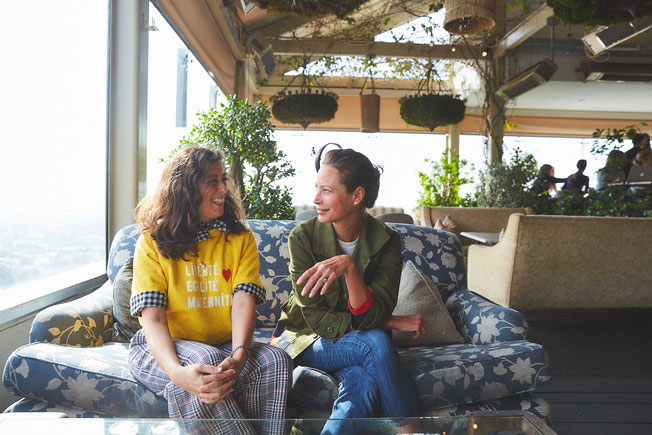
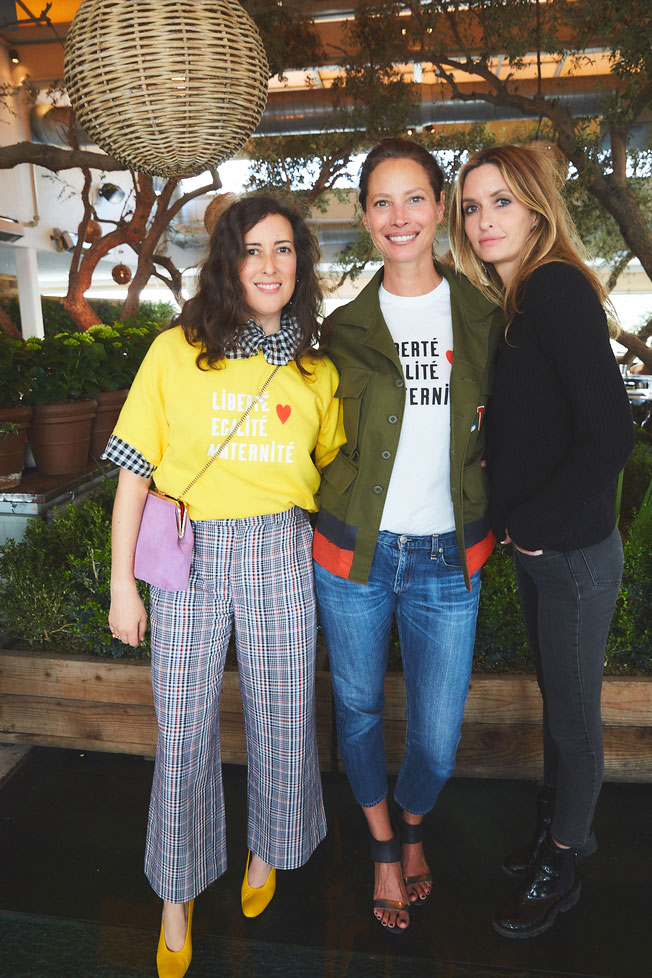
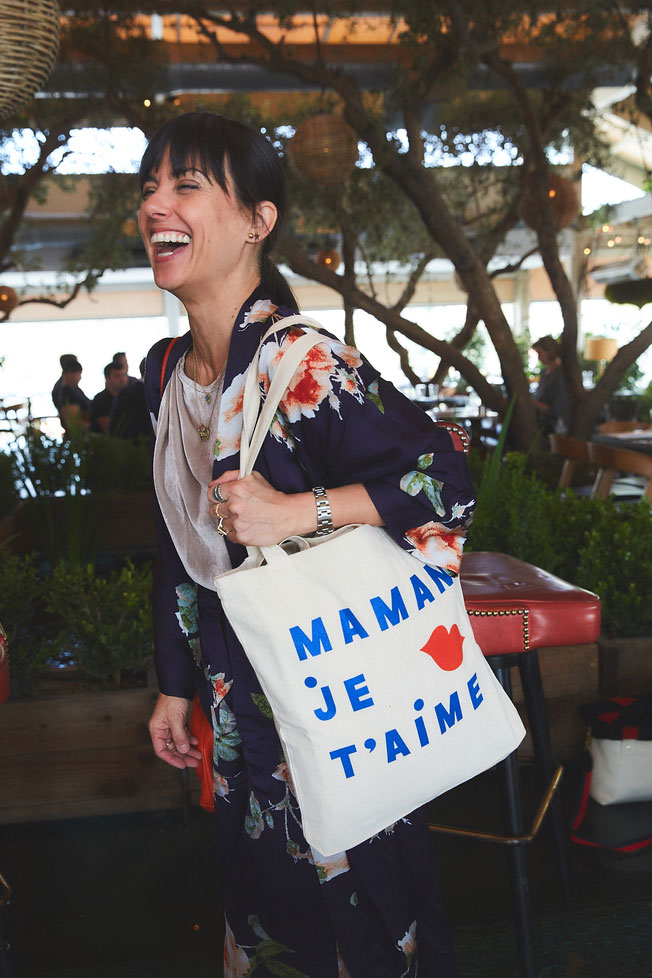


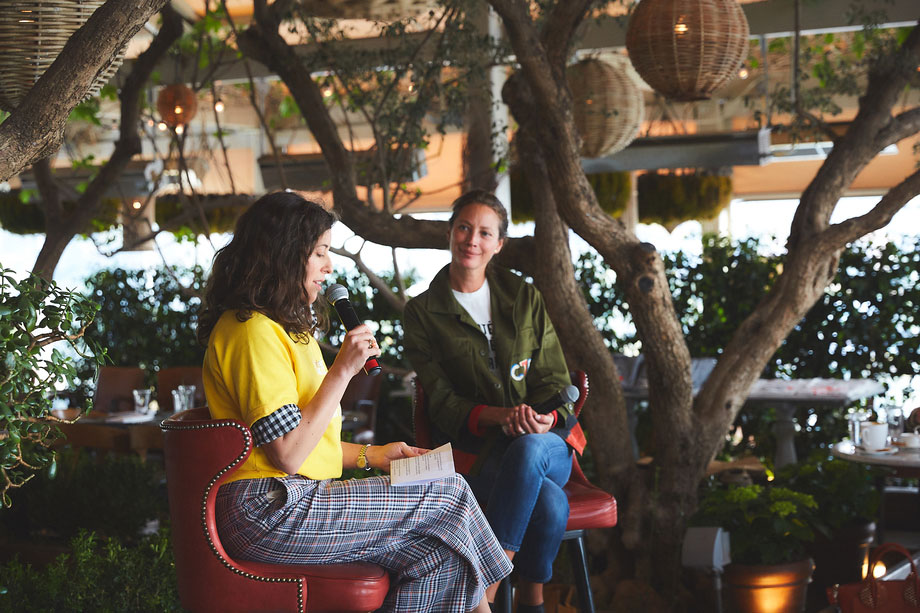
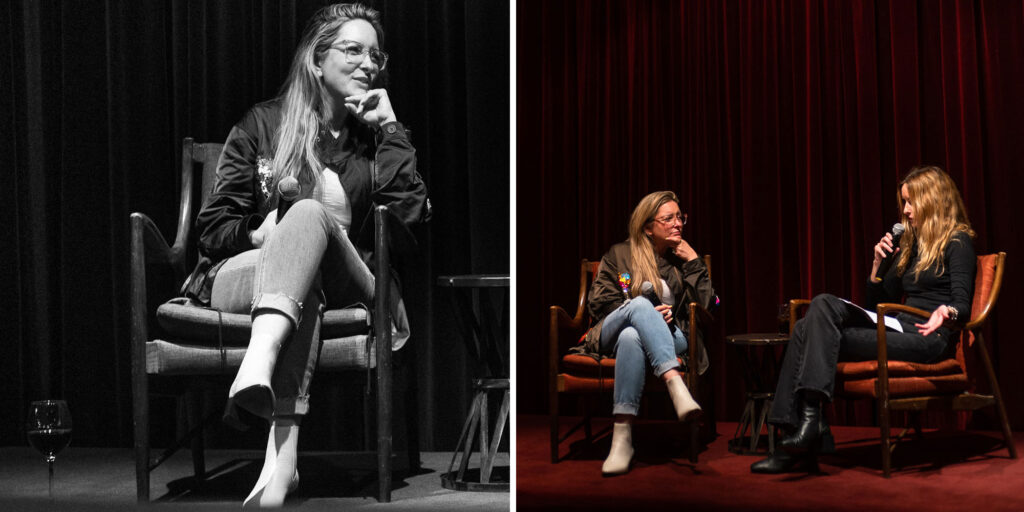




 Tonje Kristiansen:
Tonje Kristiansen:

